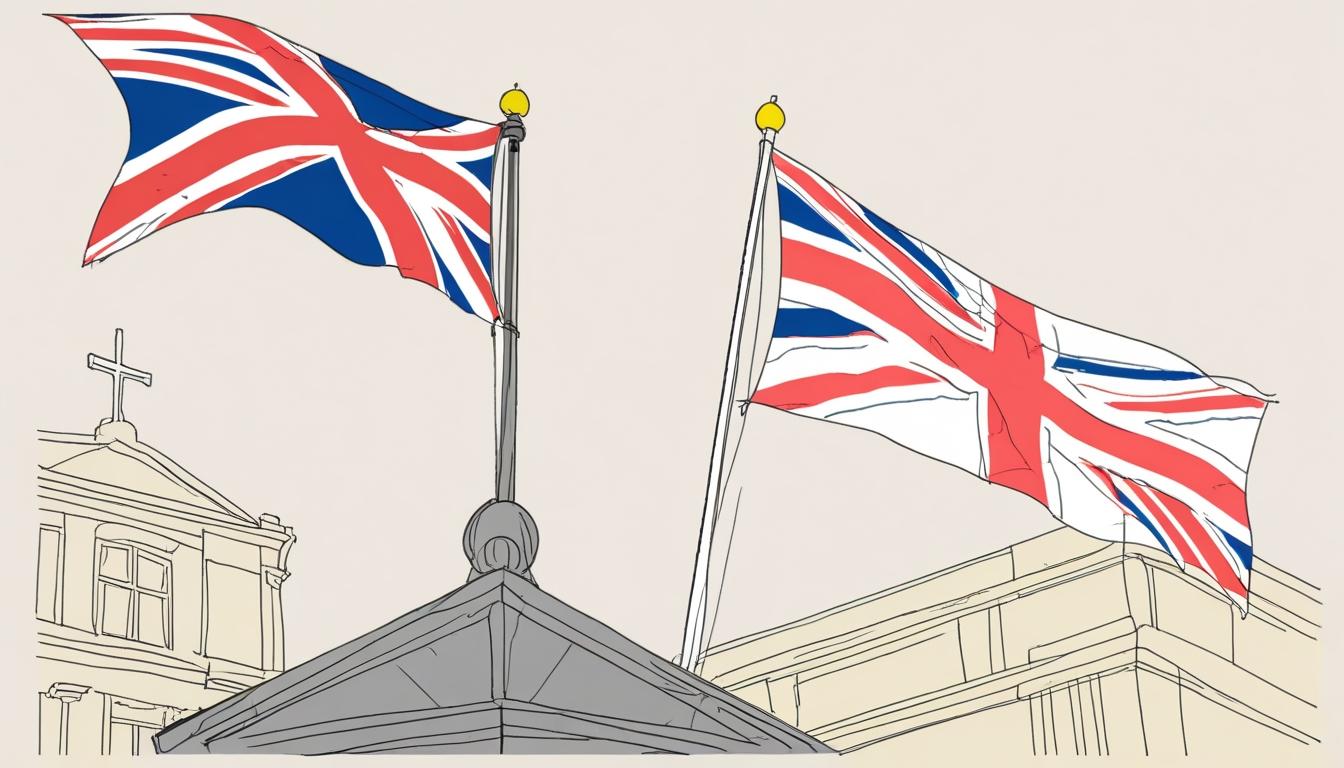Reform UK has come under fire for its controversial new directive banning the Ukrainian flag from town halls in the areas it governs. Following a notable performance in the recent local elections, where it secured ten local authorities, including regions like Durham, Lancashire, and Staffordshire, the party has announced that only the Union Jack, the St George's flag, and county flags will be permitted on its council buildings.
Zia Yusuf, the chairman, made it clear that these councils would "move at speed" to enforce this directive, asserting that flags representing only traditional British values will fly from flagpoles, balconies, and council chambers. While the inclusion of county flags has been added to the policy after initial backlash, the move raises alarms about the party’s commitment to solidarity with allies in times of crisis.
The response has been overwhelmingly critical, particularly from Labour MP Mike Tapp, who denounced the ban on the Ukrainian flag as "sickening." Representing Dover and Deal, Tapp, backed by a military history, pointed out that the UK has "a proud history of working with allies to defeat dictators and tyrants." His remarks echo concerns that the leadership may be perpetuating a harmful narrative that plays into the hands of autocrats, a sentiment echoed in the past when Farage suggested that the West "provoked" Russia’s invasion of Ukraine.
This situation further polarized the political landscape, as both Labour and Conservative MPs unified in their condemnation of the initiative. Chris Webb, MP for Blackpool South, quipped that Reform UK is off to "a great start" by “banning” the Lancashire Rose. Meanwhile, Sir Keir Starmer accused the party of "fawning over Putin," a striking charge that underscored the dangers of such a stance during an era of geopolitical tension.
In defense of the decision, a spokesperson for Reform UK reiterated their pride in flying only the Union Jack, St George's Flag, and county flags, boldly claiming their commitment to true patriotism in stark contrast to their political opponents.
This incident starkly illuminates the increasing chasm in UK politics over issues of national identity and international responsibility, particularly in relation to Ukraine. As the new Labour government, under Prime Minister Keir Starmer, attempts to reshape national priorities, Reform UK stands rooted in a vision that may sharply diverge from the unity and solidarity expected during such crucial global crises.
Source: Noah Wire Services
